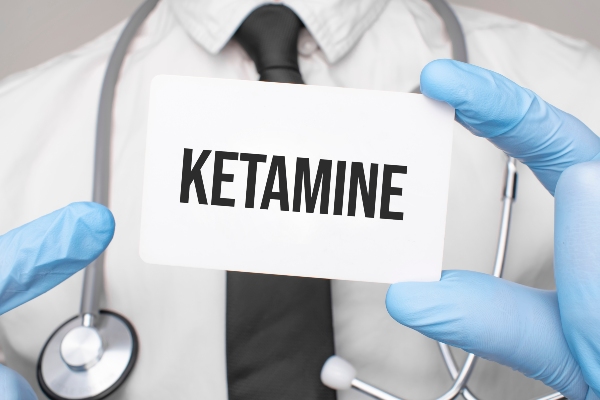 Ketamine therapy is an effective treatment for depression. While some patients respond well to traditional treatments, others do not. That is why psychiatrists try to find alternative means to help people with this condition. Asking your psychiatrist about ketamine can prepare you well for your treatment. If you want to know about ketamine therapy and how it treats depression, here are the details.
Ketamine therapy is an effective treatment for depression. While some patients respond well to traditional treatments, others do not. That is why psychiatrists try to find alternative means to help people with this condition. Asking your psychiatrist about ketamine can prepare you well for your treatment. If you want to know about ketamine therapy and how it treats depression, here are the details.
What is ketamine?
Ketamine is a type of anesthetic. It was used as a veterinary drug and even on battlefields. Psychiatrists use a lower dose of ketamine for the treatment of depression. This type of ketamine is called racemic ketamine, which is a combination of S and R ketamine.
It has not been approved by the FDA for depression yet. That is why it is used as an off-label treatment. Ketamine therapy uses ketamine intravenously. Otherwise, it metabolizes too quickly if a patient takes it orally. The treatment must be done three times each week.
What is esketamine?
Esketamine is a little different because it is the S form of ketamine. Patients can take esketamine through the nasal passages. Studies show that the results are effective and rapid. Esketamine is an FDA-approved treatment for adult depression. The patient can have it with a traditional antidepressant. Esketamine can also decrease one’s suicidal thoughts.
What is the difference between the administration of esketamine and ketamine therapy?
Research has proven that esketamine is more effective than ketamine therapy. It allows the psychiatrist to provide lower doses for depression treatment. This results in fewer adverse effects. A psychiatrist must administer both esketamine and ketamine.
Esketamine therapy is an outpatient treatment. A psychiatrist must supervise the administration of the medication. There will be three doses with an interval of five minutes. The patient will be under the psychiatrist’s watch for two hours. The possible side effects must pass first before the patient can leave.
The patient must have ketamine therapy intravenously three times a week. This type of depression therapy can be inconvenient. The patient must keep returning to the clinic for a new IV injection. Both esketamine and ketamine therapy have the following side effects:
- Headache
- Nausea
- Dissociation
- High blood pressure
- Drowsiness
What are the different types of depression?
Depression is classified according to its causes and symptoms. There is no clear cause for it. Clinical depression can last for at least two weeks. Its symptoms can prevent a person from doing daily activities.
Postpartum depression occurs around the birth of the child up to a year after giving birth. Common symptoms are stress, sadness, and worry. Bipolar depression is when the person has alternating episodes of high energy and low mood. Persistent depressive disorder involves having depressive disorders for at least two years.
Psychotic depression has symptoms of severe depression, hallucinations, and delusions. Premenstrual dysphoric disorder is an extreme form of PMS. Seasonal affective disorder often starts in early winter and late autumn. It often disappears during summer or spring.
Ketamine therapy targets treatment-resistant depression (TRD). This type of depression occurs when the patient’s symptoms have not changed for the better despite many treatments. Traditional treatments, such as psychotherapy and antidepressants, are not enough for TRD. The symptoms of TRD may be mild, moderate, or severe, and they always come back. This is when a psychiatrist may recommend ketamine therapy.
Ketamine therapy can help with treatment-resistant depression
You can ask your psychiatrist if ketamine therapy can help your treatment-resistant depression. Your consultation can show you more facts about this therapy. If it is for you, you and your psychiatrist will start preparing for your sessions. Working with your psychiatrist and health team can help you regain sound mental health.
Request an appointment or call Future Psych Ketamine Clinics at 843-788-9718 for an appointment in our Myrtle Beach office.
Recent Posts
Fibromyalgia treatment has become an important focus in helping patients effectively manage the widespread and often challenging symptoms of this condition. While fibromyalgia can involve chronic pain, fatigue, and cognitive disruptions commonly known as brain fog, there are now more tools than ever to support those affected. With a growing understanding of the condition, treatment…
Psychedelic therapy uses specific substances in a controlled, therapeutic setting to support mental and emotional healing. It has gained attention for its potential to help people struggling with conditions like depression, anxiety, and post-traumatic stress disorder (PTSD) — especially when other treatments have not helped. This kind of therapy is always done under professional guidance…
Many people think psychiatrists only help with diagnosing and treating mental disorders, but they can also aid those with chronic pain. They focus on both the physical and emotional sides of pain. With personalized care, psychiatrists can give patients useful tools and strategies to manage their symptoms and improve their quality of life.Per the Cleveland…


